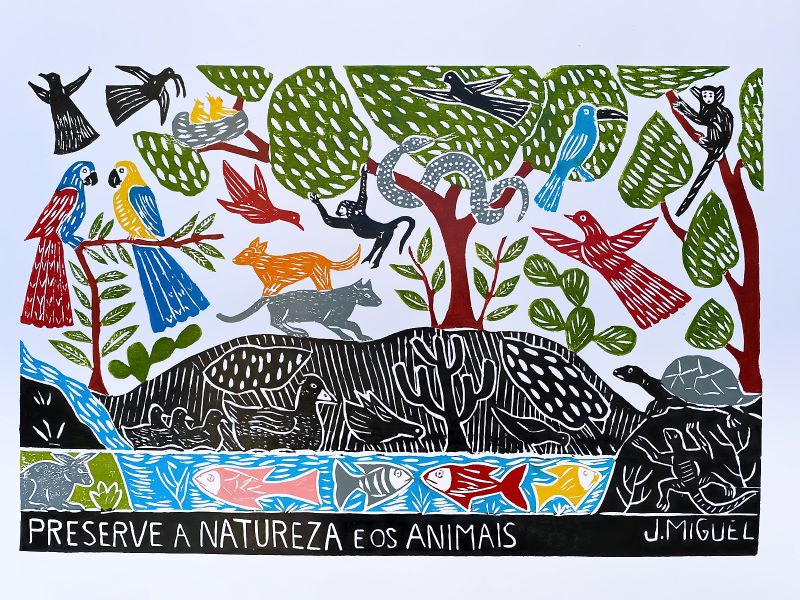

SPSAS will take place on October 27-November 8, 2024, in São Pedro, São Paulo state (image: J. Miguel)
The event, which is supported by FAPESP, is for young researchers and environmental technicians. Thirty applicants from Brazil and 30 from other countries will be selected.
The event, which is supported by FAPESP, is for young researchers and environmental technicians. Thirty applicants from Brazil and 30 from other countries will be selected.

SPSAS will take place on October 27-November 8, 2024, in São Pedro, São Paulo state (image: J. Miguel)
Agência FAPESP – Applications are now being received for the São Paulo School of Advanced Science on Co-Designing Biodiversity Assessments, scheduled for October 27-November 8 in São Pedro, São Paulo state, Brazil.
Produced and organized by the graduate program in ecology at the State University of Campinas’s Institute of Biology (IB-UNICAMP), with support from FAPESP, the School will train young scientists and environmental technicians to obtain and critically analyze biodiversity data so as more effectively to address concrete needs in the real world.
The coordinators of the event are Thomas Lewinsohn and Simone Vieira, both of whom are professors at UNICAMP.
The event will bring together researchers dedicated to investigating different aspects of biodiversity with representatives of different segments of users of this information. Topics covered will include biodiversity conservation, the impacts of climate change and land use, effective biodiversity restoration and management, maintenance of ecosystem services and functions under different use regimes, and sociocultural uses of biodiversity.
Speakers will include Bráulio Dias, a biologist with the Brazilian Ministry of the Environment and Climate Change and former Executive Secretary of the United Nations Convention on Biological Diversity (CBD); Diane Srivastava, leader of the Living Data Project and a professor at the University of British Columbia, Canada; Robin Chazdon, Professor Emerita at the University of Connecticut and Global Co-Director of the Assisted Natural Regeneration Alliance; and Joice Ferreira, a researcher at EMBRAPA Eastern Amazon and winner of the British Ecological Society’s 2019 Ecological Engagement Award.
The SPSAS on Biodiversity will be an intensive problem-oriented course lasting two weeks. In the first part, two central approaches will be explored: on one hand, the need for information on biodiversity on the part of government, NGOs, the private sector and social actors; in the other, the wide array of existing possibilities for assessing different taxonomic components of biodiversity.
In a second period lasting five days, the participants will work in groups on projects focusing on real-world needs and problems, such as ways to compare diversity in structurally distinct ecosystems and mechanisms for assessing the impact on biodiversity of different agricultural practices and conservation actions.
After the School, each team will have 12 weeks to write a final report on their work, in the form of a scientific article or technical guide. All participants will have an opportunity to present flash talks on their research, completed or ongoing, or on their technical work in environmental agencies or NGOs.
Young researchers and technicians from government agencies and NGOs in the environmental field may participate. Sixty applicants will be selected – 30 from Brazil and 30 from other countries. The selection will take geography and gender into account so as to promote diversity in the participants’ backgrounds and experience.
Applicants will be assessed on the basis of the following: CV, prioritizing the relevance of their background to the topics covered by the School; academic merit; letter of interest; and fluency in English (to be declared when completing the application form).
Applications via the online form at espca.ib.unicamp.br/en/application/ will be accepted until 3 p.m. Brasilia time on March 11, 2024. The venue for the School will be Hotel Colina Verde, Rua Veríssimo Prado, 1500, in the town center of São Pedro (SP).
For more information, visit: https://espca.ib.unicamp.br/en/home-english/.
Republish
The Agency FAPESP licenses news via Creative Commons (CC-BY-NC-ND) so that they can be republished free of charge and in a simple way by other digital or printed vehicles. Agência FAPESP must be credited as the source of the content being republished and the name of the reporter (if any) must be attributed. Using the HMTL button below allows compliance with these rules, detailed in Digital Republishing Policy FAPESP.





